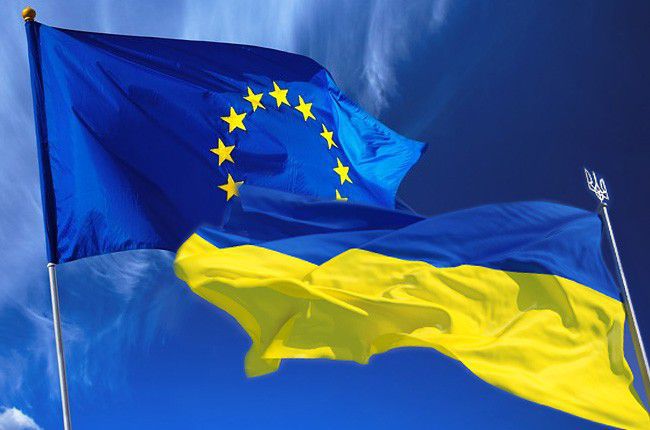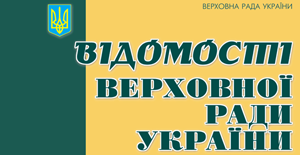If this decision is positive, the relations between Kyiv and Brussels will reach a totally new level. We are going to be more than just neighbors of the civilized world who «have a dream», like John Lennon sang. On the other hand, we will get a clear perspective to become a part of this world.
The history of Ukraine’s European integration movement is a dramatic one, and the turning points in the modern history of our country intertwine with the nation’s struggle for the European future. For instance, one can remember the Revolution of Dignity that started with the refusal of the-then president Viktor Yanukovych to sign the EU-Ukraine Association Agreement during the Eastern Partnership Summit in Brussels in 2013. Of course, the Ukrainian society demanded other things, too, but the complete change of foreign policy course evoked such a huge wave of discontent that the events in the downtown capital of Ukraine were collectively referred to as Euromaidan.
After 2014, when Ukraine and the EU approved the Association Agreement, they did not rush to take next steps. Brussels and Kyiv had too many new challenges by then. The EU suffered a migration crisis, Brexit, and the coronavirus pandemic; Ukraine faced the annexation of Crimea, and the war against russia began. Besides, the government in Kyiv faced the necessity to host complicated economic and political reforms. Given such a background, the talks about EU membership sounded less and less frequently.
February 2022 changed the situation dramatically. A full-blown war that russia had launched against Ukraine once again brought up the question about the alliance where Ukraine belongs to. Where is Ukraine’s future? The answer appeared to be obvious. On February 28, President Volodymyr Zelensky, Head of the Parliament Ruslan Stefanchuk and Prime Minister Denys Shmyhal signed the joint statement about Ukraine’s membership in the EU. On March 1, the majority of members of the European Parliament endorsed the resolution that recommends EU member states to work on the candidate membership status for Ukraine. During the informal EU summit in Versailles on March 10-11, leaders of the member countries agreed that Ukraine is a part of the European family, but the European Commission should first solve the question about the candidate status. In April, Ukraine (as well as Moldova and Georgia) filled in the two parts of the EU survey and sent them to Brussels. The European Commission promised to prepare the official conclusion about Ukraine’s readiness to get the candidate status as soon as possible. However, it appears that the reply will not only depend on the officials from Brussels. Some influential European capitals play significant part here.
First, one wants to remember the countries that definitely support Ukraine on its way to the EU. These are, above all, the Baltic States – Lithuania, Latvia and Estonia, and Poland. The governments of these countries act as our lawyers, promoting the Ukrainian European integration just as actively as Ukraine’s Foreign Ministry does.
On the contrary, some states of the old Europe are still skeptic about Ukraine’s EU membership prospects. For one, president of France Emmanuel Macron offered an alternative option of the European Union, which would involve cooperation with such countries as the Great Britain and Ukraine. The French leader immediately faced criticism, as people reprimanded him for avoiding letting Ukraine get the EU candidate member status. Macron himself denied that but the idea of creation of the alternative union disappeared from the agenda (at least for the time being) when the Ukrainian society roughly rejected it.
The Netherlands also show cool attitude to the idea of Ukraine’s EU membership. During his recent conversation with Dutch Prime Minister Mark Rutte, President of Ukraine Volodymyr Zelensky said: «I told him quite directly: «f you believe we don’t belong in the EU, you should say it frankly and clearly». It’s hard to say for sure how much the stance of European capitals regarding Ukraine’s membership in the EU actually changed; however, Ukraine pays the the maximum of its diplomatic efforts to make it happen. Olha Stefanishyna, the vice prime minister for European and Euro-Atlantic integration of Ukraine is on the road all over EU. A lot of work is being done on the parliamentary level. The Ukrainian side is trying to persuade European partners that Europe is going to benefit from Ukraine’s EU membership.
«Holos Ukrainy» spoke with several experts in foreign policy to find out what kind of benefits Ukraine would gain if it received the EU member candidate status, and what the EU interest here is.
Hennadiy Maksak, the head of the Foreign Policy Council «Ukrainian prism» reiterated that the EU has two kinds of policy regarding neighboring countries to the south and to the east; that’s the policy of enlargement and neighborhood. «Until recently, we were in the frameworks of neighborhood policy that aimed to provide the tools for the neighbors to get interested in cooperation with the EU, to create a sort of «prosperity and security cushion». The policy of enlargement has quite different tasks. It aims for certain countries that already showed their interest, ambitions and did a certain amount of homework to get ready and join this club. These are two different tracks; they have different kinds of financial and political support. We are now struggling to see to it that the prospect of EU membership is mentioned in the summary documents approved during summits, etc. If we get the candidate status, we won’t need to do this. It will mean that we’re on the track that leads to the membership – after the homework is done, which includes the pre-entry strategy and other things», he said.
That’s why, according to him, the Ukranian leaders do the right thing when they try to acquire the EU candidate member status. «Currently, we’ve got a window of opportunities provoked by the horrible events in this area, such as the full-scale russian aggression against Ukraine, and we’ve got to use this opportunity. We filled in in the questionnaire. We, the experts who look into the EU-related matters believe that Ukraine is ready to get that status. To the great extent, it is a political decision because later, when we get the status, certain talks must be held; and then, a pre-entry strategy will follow – that is, a roadmap that gives us an opportunity to close all the gaps. So currently, the main thing is to break the ice and push away the negativity in the EU. Some countries tell us: get in line, because the Western Balkans are supposed to join the EU in first place, and then, you can follow. We’ve got to understand that everyone has his own track. By the time, when the Balkan states started getting their EU member candidate statuses, we already did better than they did: we have matched a lot of requirements mentioned in the EU-Ukraine Association Agreement. It’s important to realize these things. And if they refuse us and grant us potential candidacy and tell us we’re not ready for the actual candidate status – it will mean that politically, we could not persuade the states that currently block this decision», the expert says.
– But there was this conclusion of the summit in Versailles when the EU leaders acknowledged that Ukraine is part of the EU.
– I believe it was more of a diplomatic definition, a sort of verbal ambiguity that will bring us nowhere. People can have their own definition of this «family» thing. Macron, for one, could say: «Yes, we’re a family, but I offer you a new format, a new European community that will be broader than the EU, and it will also offer new cooperation opportunities. They should tell us frankly if there’s any prospect of EU membership; and if there’s none, it’s just a pun intended.
– Shall the EU member candidate status open the door for Ukraine to use the European funds?
– It’s crucial to understand that currently, due to this tough situation in the region, while Ukraine uses this two-way track with the EU, it is getting way more money that it would get from a separate tool of preparation for membership (TPM). Of course, the money that is allocated as part of the TPM routine is bigger than the funds allocated in the frameworks of neighborhood policy, but, again, currently, Ukraine is now getting even more money on the two-way track.
– What kind of benefits will Ukraine get from the EU candidate member status?
– The benefits are about what the officials tried to do by the means of neighborhood policy but eventually failed. Is there any stability today in Ukraine, Moldova or Belarus? None. Therefore, the neighborhood policy failed. Currently, Ukraine enjoys the 90-percent support of European integration. It gives us a chance to shape a pro-European society. You don’t even need to be a statesman to realize these things; it’s enough to act as an ally who understands that it’s necessary. It comes from the statements made by presidents of the European Commission and European Parliament, and the president of the European Council. But the question is, shall they persuade their member countries that it’s a necessary thing to do? We’ll see in the end of this month.
Iryna Sushko, the chief executive officer of Europe Without Barriers, a non-governmental organization also believes that Kyiv and Brussels will both benefit from granting Ukraine an EU candidate member status. «As a matter of fact, the EU is supposed to be interested in providing Ukraine with such a status, because it would mean the launch of new projects and programs, where Ukraine not only spends money at will but also creates an attractive investment climate. That is, it’s not going to be a mere investment in the country that needs it; it will be a mutual interest», Iryna Sushko told Holos Ukrainy in a commentary.
«Currently, the expert community agrees that technically, Ukraine already lived up to all the criteria required to get the candidate status», the expert says. «Currently, we just need to persuade the EU politicians that this status provides benefits for both sides. We are quite confident that if Ukraine gets a refusal, it’s going to boost the stance of the Euroskeptics. It will deliver a powerful blow to the pro-European forces in other countries. The indecisiveness of the EU could help russia complete one of its key objectives – say, to sow discredit for the West or to halt democratic changes in the region and keep it in the unstable zone. That is, when I talk about the benefits of the EU candidate member status, I mean there are benefits for both sides, Ukraine and the EU alike».
Iryna Sushko mentions the economic benefits of this status for Ukraine, such as the enlargement of stability zone and improvement of the investment climate. «This status will also be instrumental for green transformation of Ukraine’s economy; it will create new competitive conditions that could stimulate the development of the EU market as well», the expert reiterates.
I’d like to wrap it up with Iryna Sushko’s words, as she reminds some European countries that granting Ukraine an EU candidate member status will mean that the European leaders believe in Ukraine’s victory and support our territorial integrity and independence. It will also send a strong message that the EU stands with the Ukrainian society, believing that the changes that will take place and the post-war reconstruction will be effective.








